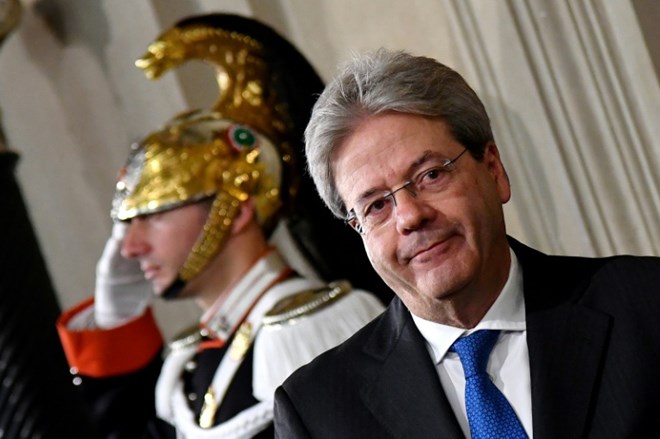Renzi ally Gentiloni named as new Italy PM

With a brewing banking crisis as a backdrop, Paolo Gentiloni was named Italy’s new prime minister on Sunday, filling a void left by close ally Matteo Renzi, who quit after a crushing referendum defeat.
Renzi’s softly-spoken foreign minister, Gentiloni, 62, was asked by President Sergio Mattarella to form a new centre-left government that will guide Italy to elections due by February 2018.
Opposition parties demanded an immediate vote, claiming Renzi would continue to pull the strings from behind the scenes.
“Gentiloni is Renzi’s avatar,” said Luigi Di Maio, one of the leaders of the populist Five Star Movement.
Far right leaders Matteo Salvini and Georgia Meloni dismissed the new premier as, respectively, “a Renzi photocopy” and “a puppet.”
The silver-haired, grey-suited Gentiloni, a one-time student radical from an aristocratic family, will mark a distinct change in style from the ebullient, hyper-active Renzi.
He began consultations on his new cabinet Sunday and is hoping to have finalised his line-up by lunchtime Monday, before seeking parliamentary approval of his new government, probably on Wednesday.
In a brief statement after meeting Mattarella, he said there was an “urgent need for a fully functioning government” to address several pressing issues.
Chief among those is the fate of Italy’s third largest bank, Monte dei Paschi di Siena (BMPS), whose board was locked in crisis talks Sunday about whether to request a state-funded and politically complicated rescue package.
Mattarella turned to Gentiloni after opposition parties rebuffed overtures about a possible national unity government.
– Renzi vows return –
Renzi, who had been in power for two years and 10 months, resigned last week after voters overwhelmingly rejected a package of constitutional reforms in a referendum he had inadvertently turned into plebiscite on his own record.
In his first explicit confirmation that he plans to try and mount a comeback, he admitted on his Facebook page Sunday that he had found it a wrench to leave office.
“It was painful to pack the cartons yesterday evening, I’m not ashamed to say: I’m not a robot,” the 41-year-old wrote.
“Only those who try to change things can help a country as beautiful and difficult as Italy.”
Five Star, Italy’s biggest opposition party, and Salvini’s Northern League are demanding a vote as early as possible.
But Mattarella, who enjoys extensive executive powers during government crises, has ruled that the current electoral laws must be revised first.
Theoretically that could happen quickly but the process of harmonising the rules governing elections to the two houses of parliament, the Chamber of Deputies and the Senate, could also drag on for months.
– Bank on the brink –
As things stand, the lower house would be elected by a system under which the largest party is guaranteed a majority of seats while the Senate would be voted in under a proportional representation system.
Most observers agree that this is a recipe for chaos but the situation could be simplified at the end of January, when the constitutional court is due to rule on the legitimacy of the new winner-take-all system for the Chamber of Deputies.
Before then, Gentiloni will have to handle a long-feared banking crunch centred on the ailing BMPS.
The bank’s share price has fallen by 85 percent this year after another slide on Friday, when it emerged that the European Central Bank (ECB) is refusing to grant any more time for it to raise badly-needed new capital from private investors.
Analysts see a state financed rescue as inevitable but, under EU rules, that can only happen if private investors also take a hit.
The issue is difficult politically with BMPS because of the large number of small investors who hold the bank’s junior bonds.
Imposing losses at smaller banks last year caused outrage in Italy and damaged Renzi’s standing.